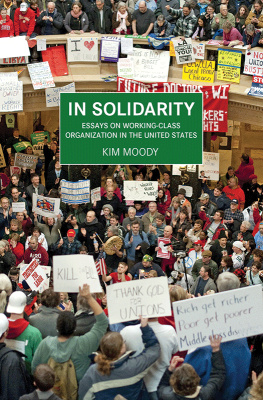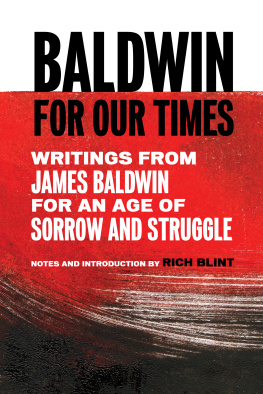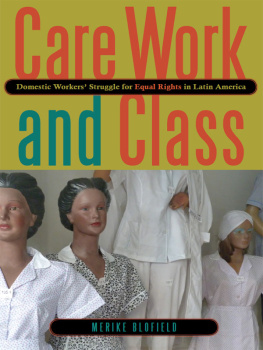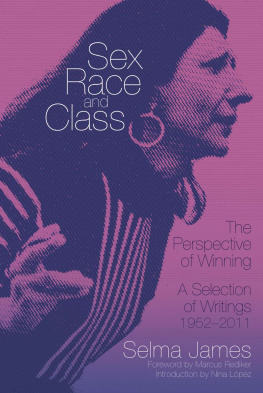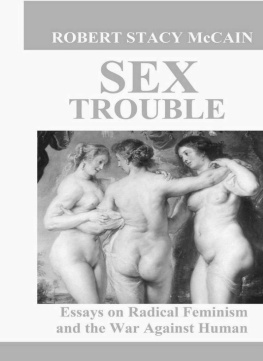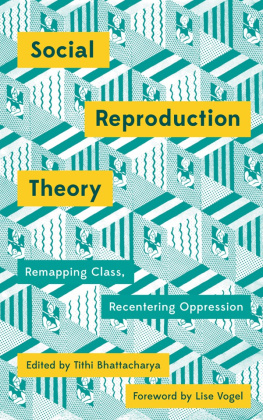
an intellectually ambitious attempt to synthesize Marxism, feminism, and post-colonialism, and not with the usual sellotaped hyphenations.
Jenny Turner, London Review of Books
Its time to acknowledge Jamess path-breaking analysis: from 1972 she reinterpreted the capitalist economy to show that it rests on the usually invisible unwaged caring work of women.
Peggy Antrobus, feminist, author of The Global Womens Movement: Origins, Issues and Strategies
For clarity and commitment to Haitis revolutionary legacySelma is a sister after my own heart.
Danny Glover, actor and activist
The publication of these essays reflects in concentrated form the history of the new society struggling to be born. Their appearance today could not be timelier. As the fruit of the collective experience of the last half-century, they will help to acquaint a whole new generation with not only what it means to think theoretically but, more importantly, the requirement of organization as the means of testing those ideas. In this respect, Selma James embodies in these essays the spirit of the revolutionary tradition at its most relevant.
Dr. Robert A. Hill, literary executor of the estate of CLR James, University of California, Los Angeles, and director of the Marcus Garvey Papers Project
In this incisive and necessary collection of essays and talks spanning over five decades, Selma James reminds us that liberation cannot be handed down from above. This is a feminism that truly matters.
Dr. Alissa Trotz, associate professor of women and gender studies, director of Caribbean studies, University of Toronto
With her latest book, Selma James reaffirms what has been evident for some time: she isquite simplynot only one of the most outstanding feminist thinkers of her generation but, as well, an insightful and exceedingly intelligent political analyst.
Gerald Horne, historian and author, John J. and Rebecca Moores Chair of History and African American Studies at the University of Houston
Common Notions is an imprint that circulates both enduring and timely formulations of autonomy at the heart of movements beyond capitalism. The series traces a constellation of historical, critical, and visionary meditations on the organization of both domination and its refusal. Inspired by various traditions of autonomism in the U.S. and internationally, Common Notions aims to provide tools of militant research in our collective reading of struggles past, present, and to come.

Sex, Race, and ClassThe Perspective of Winning: A Selection of Writings, 19522011
Selma James
This edition PM Press 2012
All rights reserved. No part of this book may be transmitted by any means without permission in writing from the publisher.
ISBN: 978-1-60486-454-0
Library of Congress Control Number: 2011927963
Cover by Josh MacPhee (justseeds.org)
Layout by Jonathan Rowland
10 9 8 7 6 5 4 3 2 1
PM Press
PO Box 23912
Oakland, CA 94623
www.pmpress.org
Printed on recycled paper by the Employee Owners of Thomson-Shore in Dexter, Michigan. www.thomsonshore.com
Published in the UK by The Merlin Press Ltd.,
6 Crane Street Chambers, Crane Street, Pontypool NP4 6ND, Wales
www.merlinpress.co.uk
ISBN: 978-0-85036-650-1
CONTENTS
A GRATEFUL PREFACE
MARCUS REDIKER
S elma James is a treasure, as this volume of riches makes clear. For more than half a century she has played a significant role in a wide variety of radical organizations and movements, many of which are not nearly well enough known. From the Johnson-Forest Tendency and the Facing Reality group of the 1950s, to the Race Today Collective in Brixton, to Global Womens Strike, James has animated and embodied a kind of radicalism that is increasingly relevant in todays world.
Her close association with the great Trinidadian scholar-activist CLR James provides a key to her political approach. One of the main ideas embodied in Jamess writings is what the late George Rawick, another close comrade of CLR James, called working-class self-activity: those many and various and often invisible things the working class, broadly defined, does for itself in the quest for emancipation. The emphasis is on action, agency, new meanings and possibilities generated, often unpredictably, from social movement and conflict on the ground. CLR James always emphasized the importance of new forms of struggle that bubble up constantly from below, often alongside and sometimes against established left-wing institutions such as unions and political parties.1
If the promise of Tom Paines The Rights of Man (1791) was expanded by Mary Wollstonecrafts A Vindication of the Rights of Women (1792) and by the lesser-known but hugely important work of Thomas Spence, The Rights of Infants (1796), James has continued in this direction, asking how it came to be that Women do two-thirds of the worlds work, receive 5 percent of world income, and own less than 1 percent of world assetsand asking, impatiently, how can this sordid reality be changed. She was doing pioneering theoretical and historical analysis of race-class-gender, with an emphasis on how each constitutes the other, long before this became a popular analytical approach during the 1980s.
Jamess political theory and her organizing strategies thus come from belowthat is to say, not from intellectuals or party functionaries who tell working people what they should be doing, but rather from factory workers, housewives, prostitutes, and migrants, as the following pages will show. And those people come not only from London and New York but from places that range from Mexico and Venezuela and Haiti to Kenya and Tanzania. James insists not only on deriving her ideas from interaction with working people of all kinds and all nations, she consistently tests and refines them in the same constituency. From her very first pamphlet, which she discussed with her fellow workers and neighbors, she has always trusted not only the decency of common people, but their ability to think and act. Every cook can govern, wrote CLR James in 1956. James carried that optimistic message into the womans world of work, the kitchen, and in so doing deepened and expanded its meaning.2
The pamphlet James cowrote with Mariarosa Dalla Costa, The Power of Women and the Subversion of the Community, which is excerpted here, is, in my view, a classic of radical literature and one of the most important political documents of the 1970s, contributing as it did to both the working-class movement and the womens movementindeed, showing activists in both that they shared a common struggle! The Wages for Housework campaign carried the message around the world. In this respect as in so many others, Jamess work has consistently expanded our idea of what the proletariat is, moving beyond the factory gate to the household, the streets, and the prison.
A case in point is her recent work with prisoner Mumia Abu-Jamal, a former Black Panther and one of the worlds most eminent political prisoners. When James visited him at the SCI-Greene Supermax Prison in Waynesburg, Pennsylvania, their wide-ranging political discussion turned to what prisoners do for themselves in their struggles against the law. The result was


